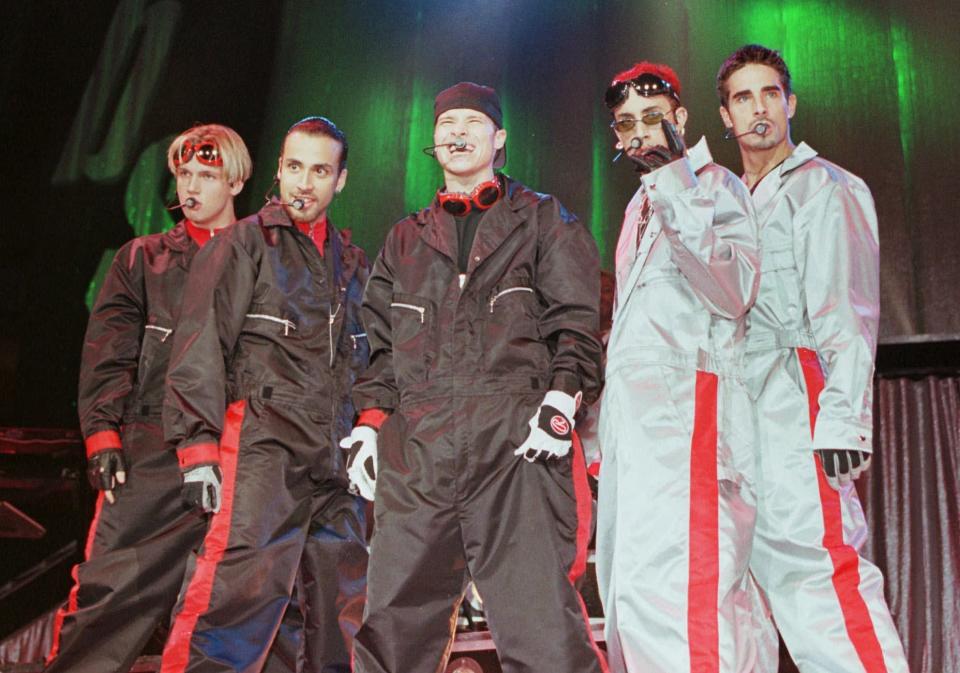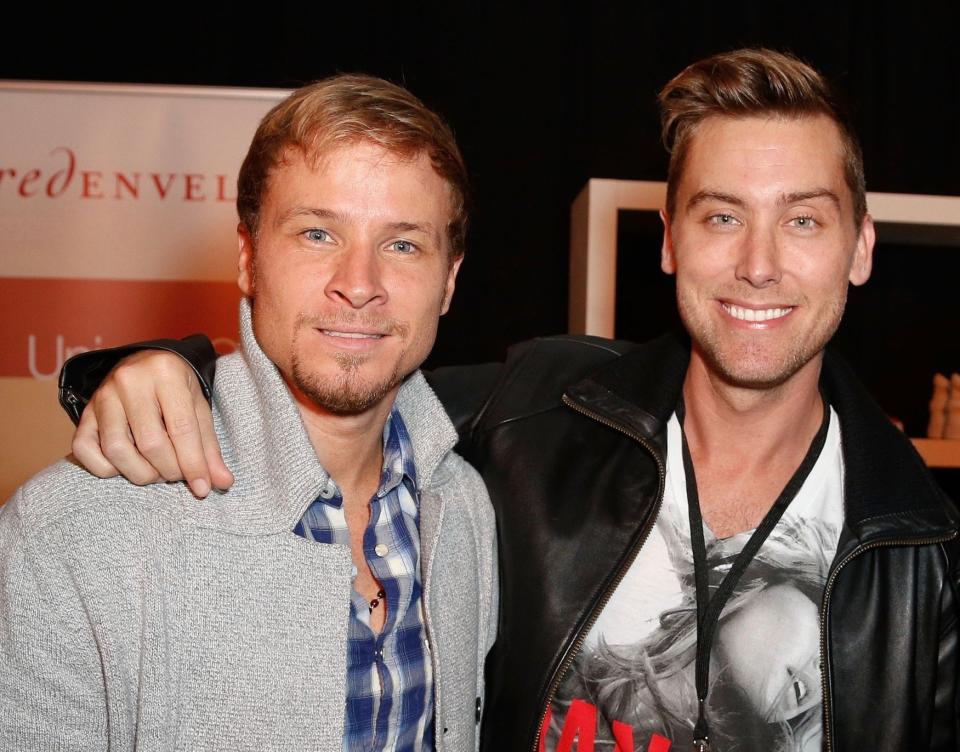Lance Bass on the 'NSync and the Backstreet Boys rivalry: 'The animosity was real'
The rivalry between the Backstreet Boys and ’NSync was real.
Lance Bass, who lived through it as part of ’NSync, reminisced with Yahoo Entertainment about his beginnings in showbiz while promoting The Boy Band Con: The Lou Pearlman Story. The doc, which he produced and appears in, is about the disgraced manager of both groups, who pitted them against each other, stole their money and ultimately died in prison. Bass says the “animosity” between his group and the BSB was “real because Lou made it real.” But one fated meal between members of both groups — at a McDonald’s in Germany, of all places — blew up the rivalry and ultimately Pearlman’s career.

“The boy band craze for me was this amazing time in history that changed everything,” says Bass, who soared to superstardom alongside Justin Timberlake, Chris Kirkpatrick, Joey Fatone and JC Chasez. But Pearlman created ’NSync on the coattails of the Backstreet Boys massive success — to corner the boy band market — and instead of having them work together in a symbiotic relationship, Pearlman’s business model was to make them dislike each other and be competitive. For instance, if the Backstreet Boys — Nick Carter, Brian Littrell, AJ McLean, Howie Dorough and Kevin Richardson — were exhausted from touring and turned down a gig, they’d slot in ’NSync, and animosity grew.

“The animosity was real because Lou made it real,” Bass explains. “He would always tell us certain guys in the Backstreet Boys would say this — and then he would tell them that certain guys in ’NSync would says this. He did a really good job at pitting us [against each other]. So when we would ever see each other — at awards shows and that type of stuff — we would completely steer clear of the Backstreet Boys because we didn’t know if they hated us or not.”
Even though they were under the same label, Pearlman’s Trans Continental, and had the same management team — also including a former New Kids on the Block manager, Johnny Wright — “we rarely saw those guys in our career,” Bass says. “Maybe four times in my life did I ever run into [them].”

When they did, it began Pearlman’s undoing. “The very first time” they met “was in Germany when we were both living over there,” Bass says. “We started a basketball charity game together because we wanted the fans to unite.”
Some very grainy footage from their 1997 charity basketball game in Germany:
“That was the very first time we got to speak to the Boys” at all, Bass says. And it was the first time “some of the ’NSync guys got to talk to some of the Backstreet Boys about Lou Pearlman,” who they affectionally called Big Poppa. “It was one trip to McDonald’s that got it all started with [’NSync’s] Justin and JC. That’s when [BSB’s] Brian really flipped out and said, ‘Oh my gosh, Lou’s been lying to us this whole entire time.’ So it was really Brian Littrell who kinda started the whole thing.”
Littrell hired a lawyer to find out why the Backstreet Boys’ paychecks were minuscule compared to the millions Pearlman was raking in. It was determined the band members — which had been touring non-stop and selling tons of merchandise earned — were paid a total of $300,000 over four years, or about $12,000 per member per year. So a lawsuit against Pearlman was filed by the BSB in 1997.
’NSync did the same, settled and severed ties with Pearlman in 1999. Aaron Carter, whom Pearlman also managed (in addition to O-Town and LFO and others) also sued Pearlman in 2002 and settled out of court.

Pearlman’s talent pool turning against him turned out to be a fraction of his troubles. The disgraced manager, a first cousin of music legend Art Garfunkel, was accused of running one of largest Ponzi schemes in history, bilking 1,400 investors out of more than $300 million. He was also accused of sexual misconduct. While the boy bands were taking the world by storm, he was grooming new acts and they were regularly at his Orlando home. There were claims that Pearlman acted inappropriately there, including molesting men and seeking sex in exchange for help with their careers.
In 2008, Pearlman was convicted on charges of conspiracy, money laundering and making false statements during a bankruptcy proceeding and was sentenced to 25 years in prison. While incarcerated, he infamously bragged how his Ponzi scheme was better than Bernie Madoff’s in a 2014 interview. He died two years later in prison, as a result of heart problems, and received a cold reaction from the talents he deceived.
The Boy Band Con: The Lou Pearlman Story is available to watch on YouTube Originals.
Read more on Yahoo Entertainment:
Lori Loughlin's 'smiley' appearance at court criticized: 'This is not red carpet time'
Nirvana manager recalls Kurt Cobain's final intervention: 'Is there something I could've done?’
The three words Kathie Lee Gifford's son said that made her cry on her final 'Today' show
Want daily pop culture news delivered to your inbox? Sign up here for Yahoo Entertainment & Lifestyle’s newsletter.


